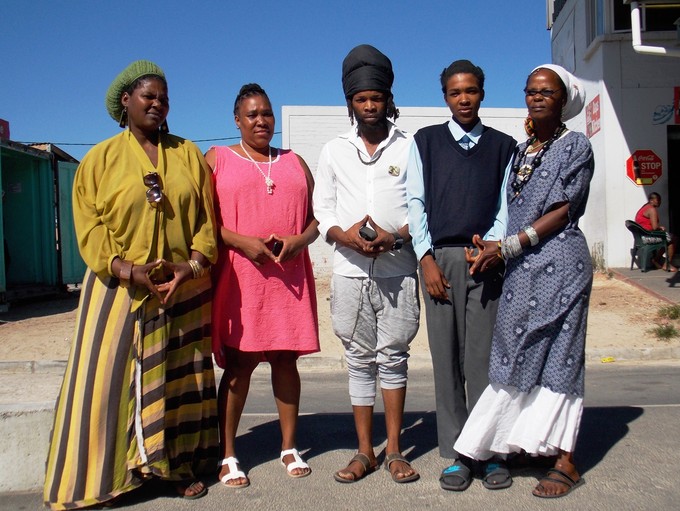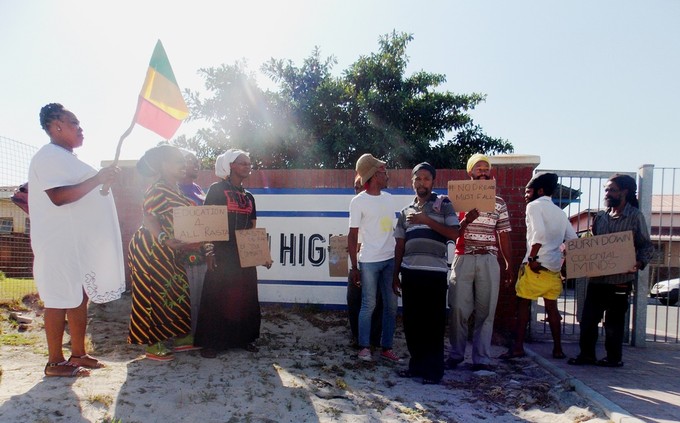
From left to right: Nonkosi Stofile, Neziwa Marhe, Judah Ngcangatha, Anathi Marhe and Woizaro Sontsonga Haramanuba. Photo: Siyavuya Khaya
9 February 2016
Friday last week was a special day for 17-year-old Anathi Marhe in grade 11 at Mfuleni High School. It was the day he was allowed back to school following his exclusion for nearly three weeks because of his dreadlocks.
Marhe says that at the start of the new school year on 13 January, he was told by his class teacher that boys are not allowed to have dreadlocks and he should cut them.
He refused, explaining to the teacher that it was part of his religion as a Rastafarian to have long hair. But, he says, the teacher was not interested in his explanation and responded instead with some choice words, embarrassing him in front of the class.
“The teacher shouted at me and said, ‘We don’t teach Rastafarians in the school’, and [that] I’m going to bring a bad influence,” says Marhe. “The teacher said I should go to the principal, who told me to cut my dreadlocks if I want to study. I refused. He said that I should go home and he is going to call a meeting between my mother and the School Governing Body (SGB) to discuss this issue.”
After a few days waiting for his mother to be called by the principal, he decided to go back to school. Again, his teacher refused to teach the class while he was in attendance.
The teacher also confiscated packets of peanuts Marhe was selling and searched them thoroughly, claiming that he was selling dagga inside the school premises.
A meeting was eventually held on 2 February by the SGB. It said he should abide by the rules of the school and cut his dreadlocks if he was interested in continuing his studies.
His mother, Neziswa Marhe, said the family then approached the Department of Education in Cape Town.
“I had begged my child too many times to just cut the dreadlocks and go back to school . But my child said he will never let anyone discriminate against his religion. I had no choice but to stand with him in this battle, even though I’m not a Rastafarian,” she said.
She said her son used to refuse to do house chores and on weekends he would not sleep at home, but after he became a Rastafarian he started to behave and obey the rules of the house. He no longer sleeps out.

On Friday morning, Marhe’s mother and a representative from the Rastafarian United Front met the principal. A group of Rastafarians picketed outside the school premises.
After nearly two hours of discussion, it was agreed Anathi could return if he wore a bandana around his head.
Provincial Department of Education spokesperson Jessica Shelver said school governing boards could decide on dress codes, including hairstyles, as part of their code of conduct. But, said Shelver, the Department of Basic Education had published guidelines on drafting codes of conduct and this included the need to respect religious and cultural practice.
“Our district officials discussed this with the school principal immediately upon hearing of the matter, and he agreed to discuss the matter with the parent and SGB,” she said.